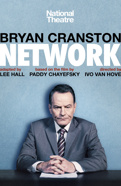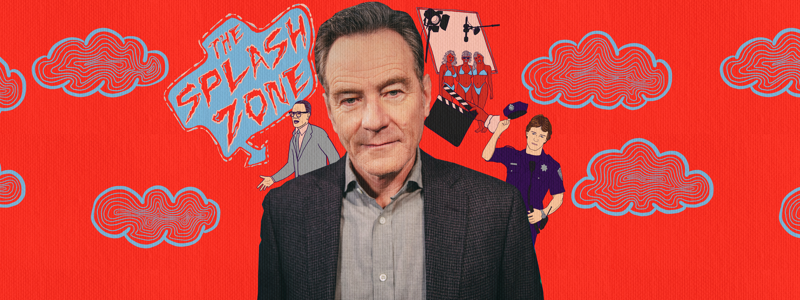
(Photo by Caitlin McNaney/Illustrations by Ryan Casey for Broadway.com)
Network‘s Bryan Cranston on Unruly Audiences, Damn Yankees Dreams & More on Show People with Paul Wontorek
Bryan Cranston is mad as hell, and Broadway audiences are loving every minute of it. He is giving an electric, Tony-nominated performance as unraveling news anchorman Howard Beale in Network, the stage adaptation of the iconic 1976 film, at the Belasco Theatre on the Great White Way. Hailed for his Emmy-winning performance as Walter White in Breaking Bad, his Tony-winning turn as President Lyndon Baines Johnson in All the Way and more stage-and-screen triumphs, Cranston is one of the most celebrated actors of our time. He stopped by Show People with Paul Wontorek to discuss his illustrious career, his desire to do Damn Yankees, and what he'll do if he catches you texting at the theater.
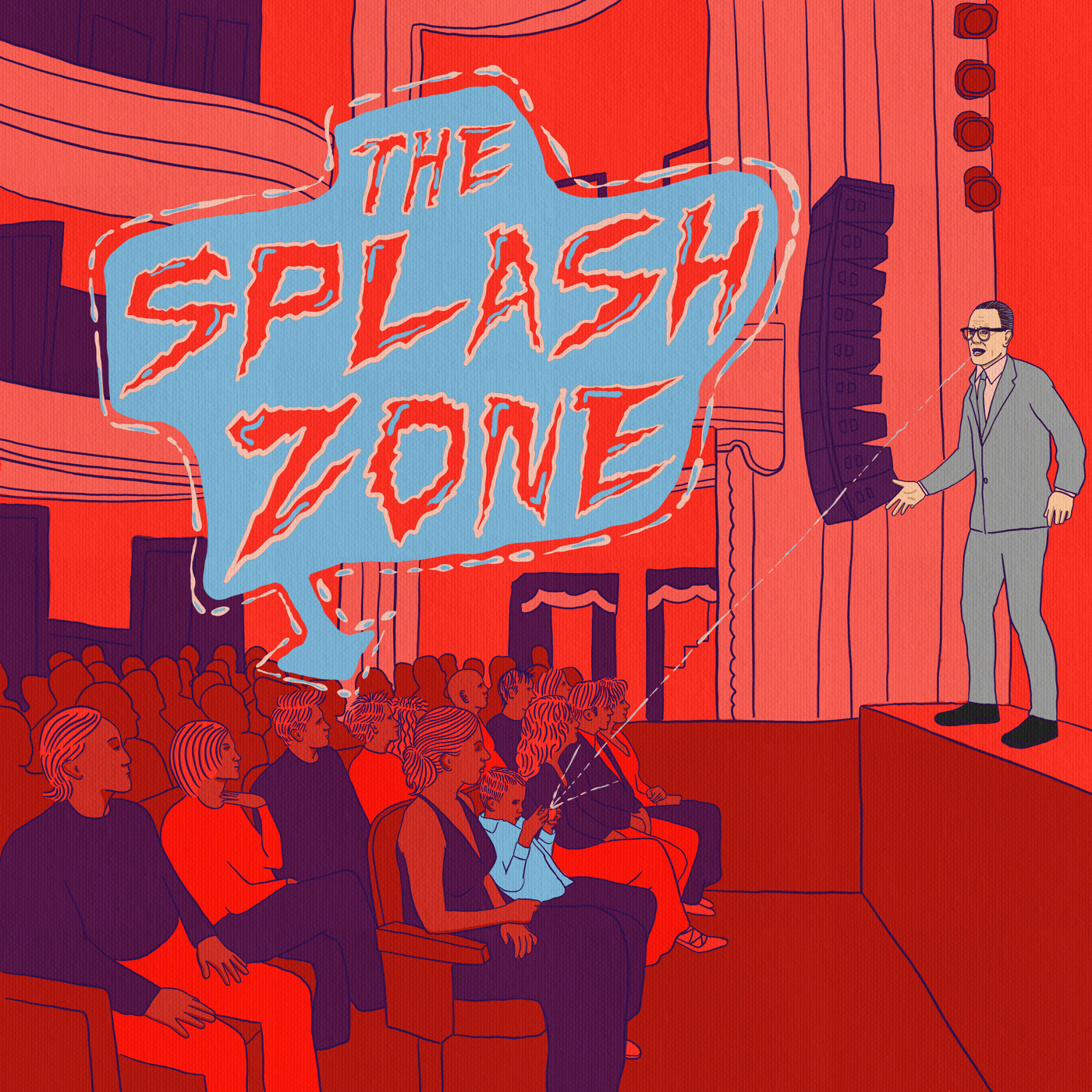
1. HE MIGHT DIRECT HIS SPEECH SPIT AT YOU IF YOU'RE TEXTING
“It’s like a splash zone when you go to SeaWorld. Doing All the Way, I saw this kid dead center, first row with his iPhone in his lap. I’m a little embarrassed to say that it got to me. It started to make me a little angry, and I got a little angrier. My cast was wondering why I was staying downstage so long. I had this speech, and I was expectorating during this speech. I spat on another human being. His parents were two seats away. They knew what he was doing. I think the civility in the theater has gone way down.”
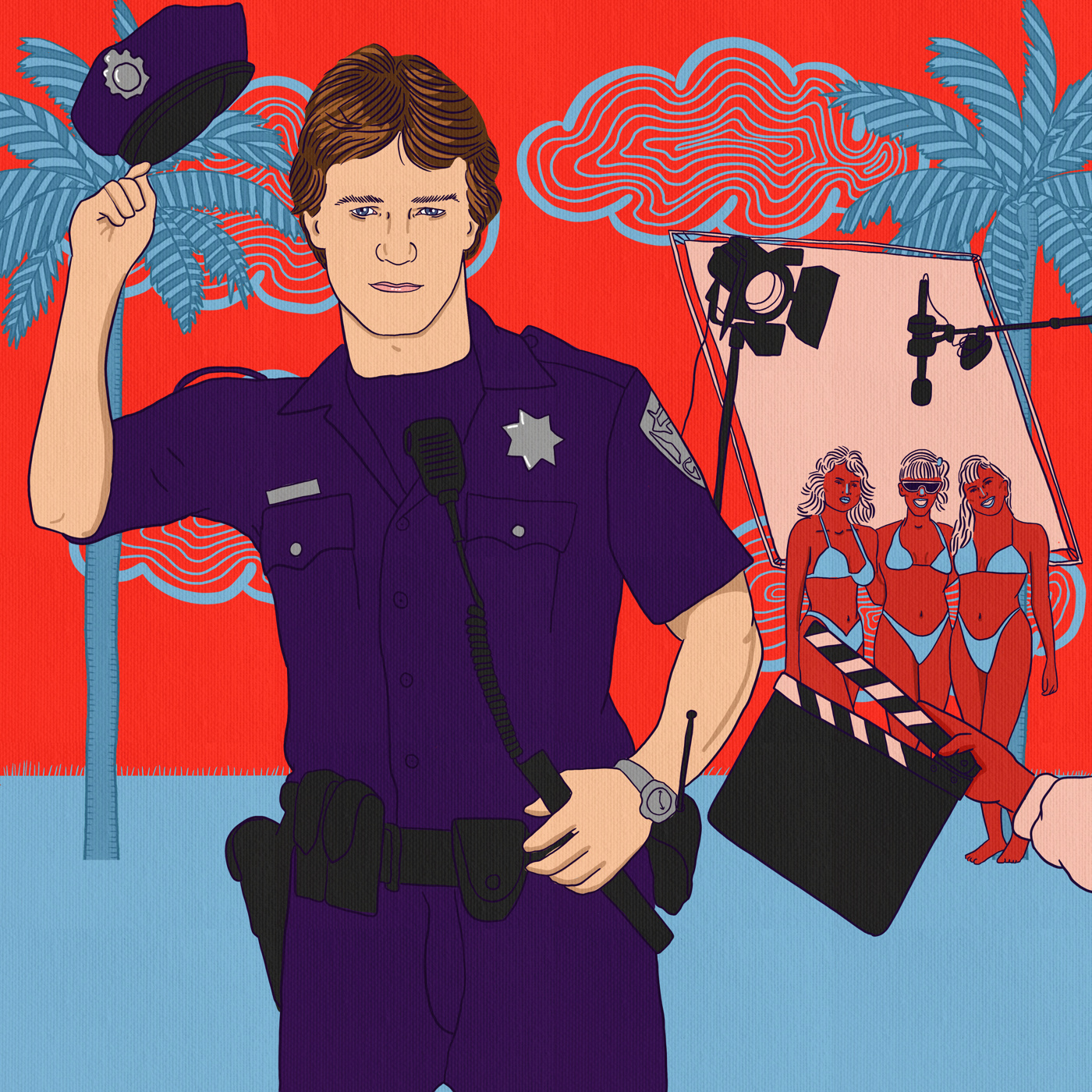
2. ACTING—AND WOMEN—DISSUADED HIM FROM BECOMING A COP
"I was going to be a cop, and then I discovered acting—and girls. It's crazy! It's embarrassing actually. It's like, 'Wait a minute: I've made a lifetime decision based on that?' It's insane."
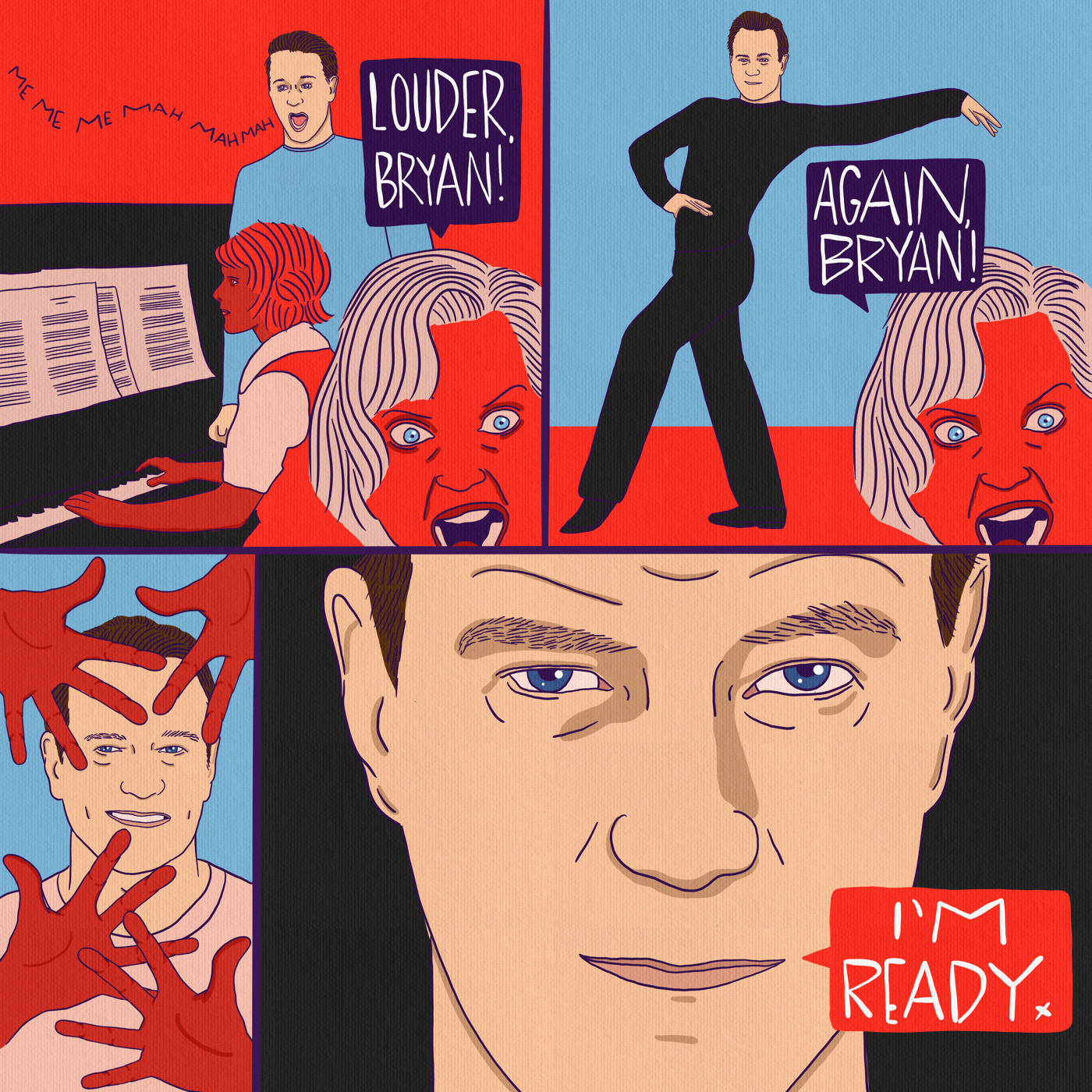
3. DAMN YANKEES ISN'T OFF THE TABLE
“I’d really like to play Applegate in Damn Yankees. I really would. It scares me. I’m not a singer. With a lot of training and a lot of support from the company, I think I could get there. Give me a couple years of really working it and training the voice. But it’s scary to me. Often when I’m afraid of something, it’s something that I lean into.”
Other must-read highlights:
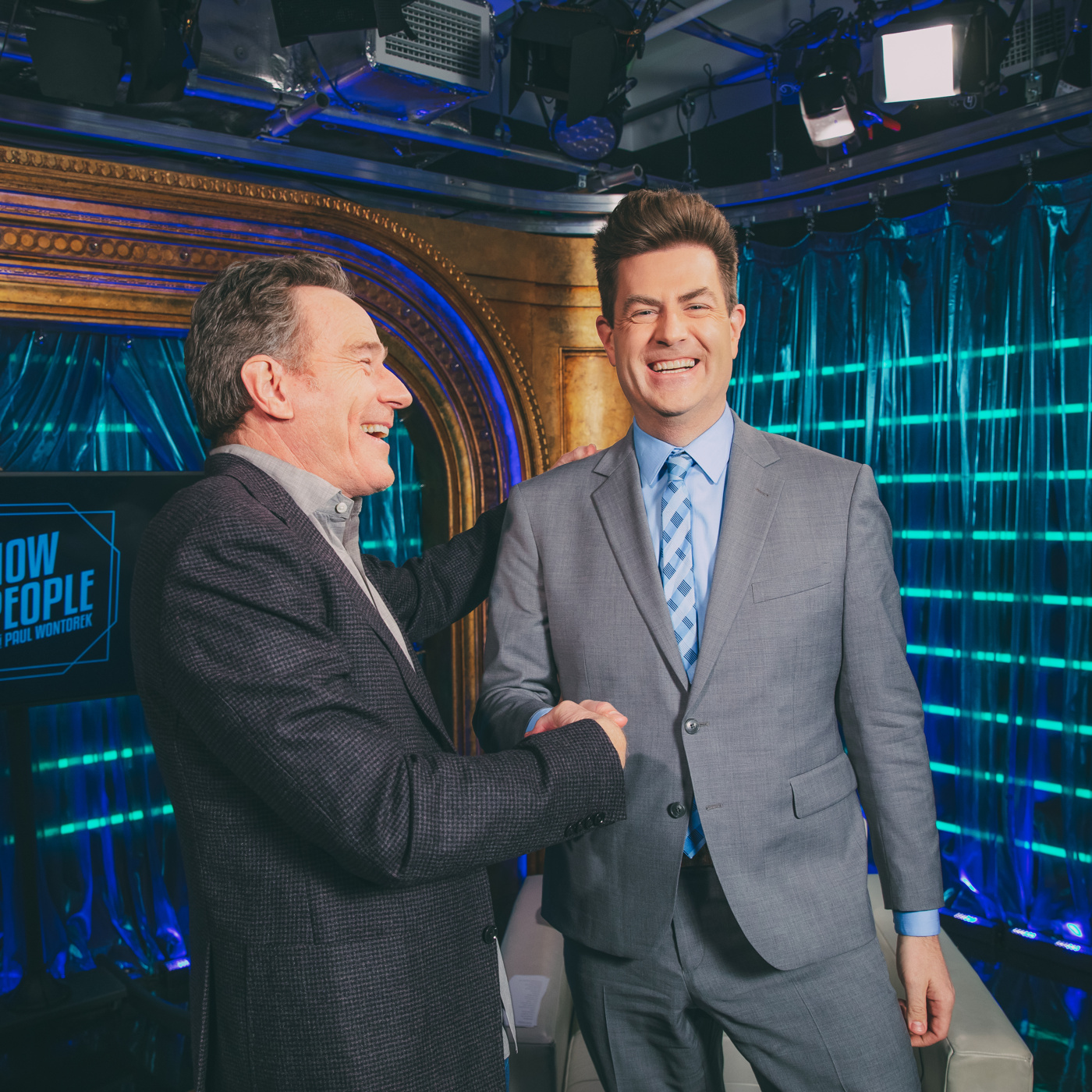
(Photo: Caitlin McNaney for Broadway.com)
ON NETWORK'S MULTIMEDIA SET
“Part of the theme of Network is that we are addicted to our screens. Forty-three years ago, Paddy Chayevsky wrote about how people were addicted to their televisions—the tube, in those days. Now the tube comes in our hands. We’re addicted to it—myself included. Ivo van Hove and Jan Versweyveld created this cacophony of visuals and sound that draw your attention on purpose.”
ON THE ONSTAGE DINING
“In London, I was looking at a model of the stage, and I was asking Ivo and Jan: ‘So there’s a restaurant and a bar onstage?’ I said, ‘So are the actors going to be seated here as background people?’ ‘No, we will have normal people sitting there, eating and drinking.’ I said, ‘Before the play?’ ‘No, no. During the play.’ ‘Drinking alcohol?’ ‘Oh, yes.’ It’s a very high-class dinner theater! I initially thought, ‘This is a terrible idea.’ You have civilians onstage with actors eating and drinking and waiters serving and clinking and cutting and eating. There have been very few incidents.”
ON CREATING HIS HOWARD BEALE
“I have to do a lot of stream-of-consciousness writing, usually on a pad just as a template for getting started in developing the foundation of a character. Whenever I start a character, it’s always outside of me. It’s somewhere out there. I feel the more I work, the more I research, the more I imagine, the more I go back to the text—the character comes a little closer the next time I look up. At some point, I just trust that it’s going to come inside. I put the ‘Welcome’ sign out. Come on in! When he’s in there, then we start thinking and feeling like Howard. What Peter Finch did in the movie was brilliant, and I certainly didn’t want to emulate him or be derivative of him. But there was a sense of urgency and anger, and what I felt was, being mad or angry to me has always felt like it’s not your first emotion. It’s a result of something. I wanted to get to the first one. Is it being embarrassed? Is it being hurt? Are you in pain? I wanted to get down to the deepest level of Howard Beale to figure out what triggered the anger. That’s what my focus was on.”
ON THE PROJECTS HE'S ATTRACTED TO
“I suppose the characters that I’m really attracted to are really damaged because they have so many things to overcome. That is a flame for this moth. Yes, I could see myself doing something less all-encompassing and physically demanding, but it’s all about the story. It always is and always will be about the writing. That’s the most important fundamental element to performance art, and there is no alternative to that. It is everything. When you read something that moves you, that resonates, that is important, that says something socially, that makes people think or—even like in Network—makes people angry, that’s a good thing. When people leave the theater, if they continue to talk about what they just experienced, you’ve really done well. You’ve really told a good story.”
ON HIS CAREER
“My career happened the way it was supposed to. I can’t say what it would have been like if I’d made an impact earlier. Logic would say your maturity level hopefully grows as you get older. My proudest professional accomplishment still is when I was twenty-five. I knew that I had passed a threshold to become a professional actor, and that’s all I did to make a living. That still is my proudest moment because I think anybody who can honestly say, ‘That’s what I do for a living. I am an actor for a living,’ you are the luckiest human being.”
Watch the full episode of Show People with Paul Wontorek below!
Did you know Show People is available as a podcast? Check it out on iTunes and Spotify.
